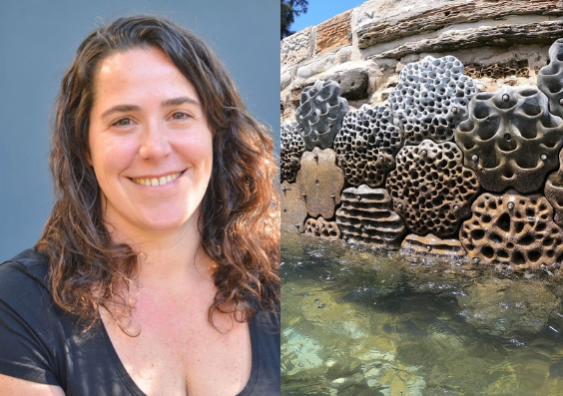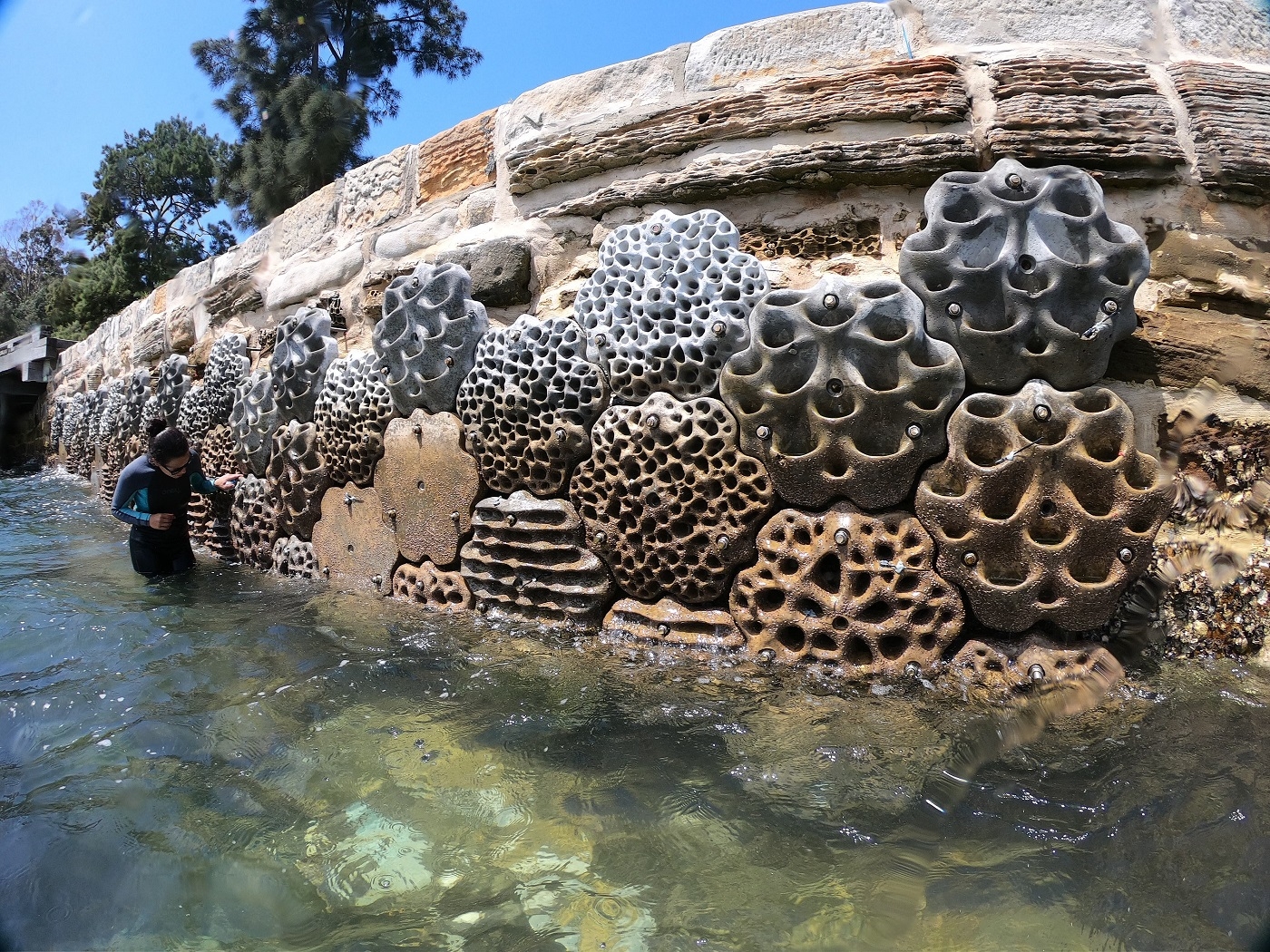UNSW researcher co-leads project nominated in Prince William's environmental Earthshot Prize
Marine scientist Mariana Mayer Pinto is part of the Australian team nominated as a finalist for a new prize established by the UK’s Royal Foundation.
Marine scientist Mariana Mayer Pinto is part of the Australian team nominated as a finalist for a new prize established by the UK’s Royal Foundation.

Living Seawalls, a project co-led by Mariana Mayer Pinto at UNSW Science, has been nominated a finalist for the inaugural Earthshot Prize. Launched by Prince William and The Royal Foundation in 2020, The Earthshot Prize aims to inspire and incentivise innovation and leadership to tackle the greatest environmental challenges facing the planet.
Five of the 15 finalists will be awarded the prize and will win £1 million ($1.9 million) in funding for the best solutions of the five Earthshot goals: Protect and restore nature; Clean our air; Revive our oceans; Build a waste-free world; and Fix our climate.
A flagship project of the Sydney Institute of Marine Science (SIMS), Living Seawalls has been selected in the Reviving Our Oceans category. Dr Mayer Pinto co-leads the project along with a team of female scientists from Macquarie University and SIMS, with design expertise from Reef Design Lab, Melbourne. It is the only Australian project nominated for the prize.
Living Seawalls started in Sydney Harbour and has been figuring a solution to rising sea levels. Rising sea levels are a particularly acute problem in Australia where over 80 per cent of the population lives in the coastal zone. While sea defences protect shorelines, they are often flat structures, devoid of shelter for organisms like fish, invertebrates and seaweed.
The project is a collaboration between creative designers and marine ecologists. Its habitat panels, designed to mimic natural formations like rock pools and mangrove roots, are fitted to new or existing sea defences. As a result, life has found its way back to Sydney’s shorelines. Sea defences fitted with habitat panels have 36 per cent more marine life after just two years, with further increases expected through time. More than 80 species of fish, invertebrates and seaweed thrive among the panels.
The project operates at 11 Australian locations, and now benefits shorelines in Wales, Gibraltar and Singapore. As a project that lies at the intersection of ecology, architecture, design and engineering, Living Seawalls is an example of how science is translated into action to repair the planet. The team has realised the enormous potential to increase the environmental and social worth of coastal structures by designing with nature in mind.

The habitat panels are designed to mimic natural features such as rock pools and crevices and ledges. Image: Leah Wood
Dr Mayer Pinto said she is thrilled the project has been nominated for the prestigious prize.
“It’s an honour to be nominated among the other amazing finalists in this category. This project is about enhancing the ecological value of artificial structures such as sea walls. The amount of area modified by these structures is actually bigger than mangrove forests, so they have a massive footprint on our global ecosystem,” she said.
Winning the prize would help fund additional research and development into the project as well as educational programs, Dr Mayer Pinto said.
“It would also help us take the project to areas like developing countries where construction is predicted to increase and they may not have resources to do this. Ideally there would be Living Seawalls on each continent, and we could build local capacity for people to integrate it into their environments in a way that works for them environmentally, economically and culturally.”
UNSW Dean of Science Professor Emma Johnston welcomed the nomination.
“The Living Seawalls project demonstrates Sydney's world-leading capacity for developing and implementing nature-based solutions to environmental challenges. Congratulations to Dr Mariana Mayer Pinto and the team at SIMS for being rightly recognised for such a critical restoration program.”
Over 750 nominations were received for the prize, with 15 finalists selected from 14 countries.
Prince William said: "Over half a century ago, President Kennedy’s ‘Moonshot’ program united millions of people around the goal of reaching the moon. Inspired by this, The Earthshot Prize aims to mobilise collective action around our unique ability to innovate, problem-solve and repair our planet.
“I am honoured to introduce the 15 innovators, leaders and visionaries who are the first-ever finalists for The Earthshot Prize. They are working with the urgency required in this decisive decade for life on Earth and will inspire all of us with their optimism in our ability to rise to the greatest challenges in human history.”
All 15 finalists will receive tailored support and resources from The Earthshot Prize Global Alliance Members, a network of private sector businesses around the world who will help scale their solutions to realise an even greater impact.
The five winners will be announced at a ceremony on Sunday 17 October in London.